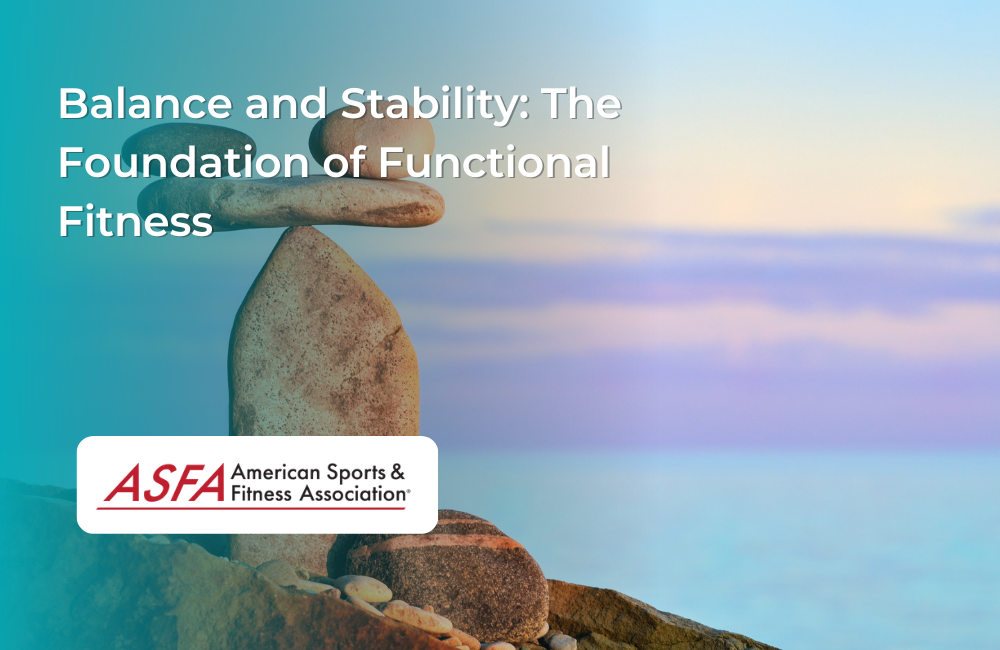Balance and Stability are the foundation of all training. Without them, you can't even get started on your journey to becoming functionally fit. Fortunately, they're also easy to develop - but it takes some time and commitment. In this article we'll look at balance and stability training, how to develop it in your own life, and why it's so important for your overall health.
What is "Functional Fitness"?
Functional fitness is the ability to move your body in all planes of motion. While this may sound like an obvious definition, it's important to note that functional fitness is different from traditional fitness. In short, traditional fitness focuses on strength and endurance while ignoring balance and stability--which are just as important in everyday life as they are for athletes.
Fitness should help you do things that you need to do every day (like lifting groceries) without injuring yourself; if a workout can't be incorporated into your daily routine without causing pain, then it's probably not worth doing at all! By focusing on functional movements--like squats or lunges--you can train these muscles without putting undue stress on other parts of your body or risking injury by using poor form during exercise routines such as running up stairs instead of taking the elevator up only one flight instead of five flights...or worse yet: walking up stairs at all!
What is Balance and Stability?
Balance and stability is a concept that involves the ability to maintain control of your body while in motion. It differs from strength, power, and endurance because it focuses on maintaining control over movement rather than producing large amounts of force or speed. A common example of this is when someone is running down a hill and loses their footing because they didn't have proper balance when running downhill.
In everyday life we use balance and stability constantly: walking up stairs without slipping on ice; getting out of bed without falling over; riding a bike without wobbling into traffic; standing up straight when bending over at work all day--these are just some examples where poor balance can lead to injury or discomfort!
There are 3 components needed for developing good balance: proprioception (the ability to sense where parts of your body are relative to each other), vestibular system (the part responsible for detecting head movements), visual cues such as walls/objects around you
The Importance of Balance and Stability Training
Balance and stability training is an important part of functional fitness. It helps you to improve your balance, coordination, strength, and flexibility by working with your body as a whole instead of just focusing on one muscle group at a time.
You may have heard people talk about how they work out their abs or arms at the gym--and while those exercises are useful for building muscle tone in those areas, they don't necessarily help you improve your overall level of fitness by much.
Balance and stability exercises do more than just build muscle; they also help keep us strong as we age by improving our posture (which helps prevent injury), improving our range of motion (which makes everyday tasks easier), and teaching us how not to rely on other people for support when we need it most!
How to Develop Balance and Stability
Balance and stability are important for everyday life. They help us perform daily tasks, prevent injury, and improve mobility, confidence, and performance in sports. Balance and stability exercises should be customized to the individual's needs, abilities, and goals.
There are many benefits of developing a strong foundation of balance and stability:
- Balance training can help prevent falls by improving your ability to maintain an upright position on one foot or when walking over uneven terrain (e.g., hills).
- Stability exercises increase muscle strength around joints which reduces stress on those joints when performing functional movements such as squatting down or picking up heavy items off the ground - this decreases the risk of injury while also increasing overall performance capacity.
A strong foundation can help you take on whatever life throws at you.
A strong foundation is the foundation of functional fitness, and it's also key to lifelong health and wellness. A strong mind must be supported by a healthy body, which in turn depends on a happy life full of success in work and play. Balance and stability are essential for every aspect of your life: physical, mental, emotional--and even spiritual! So whether you're looking for ways to improve your performance at work or school; preparing for an upcoming event like a marathon or triathlon; working toward getting into better shape; trying to figure out how best not only stay active but also enjoy it...the answer lies within our bodies ability to stay upright while moving freely through space (or water).
Conclusion
Balance and stability are the foundation of functional fitness. Without a strong base, it's impossible to build a strong body or mind. In this article, we've covered the basics of how to develop your balance and stability skills so that you can take on whatever life throws at you!





